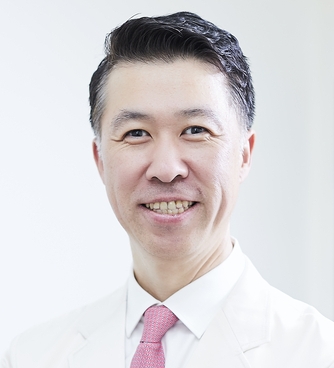-The largest genetic research on 110,000 women worldwide
-In Korea, Daelim St. Mary’s Hospital Director Kim Seong-won participated in the Korean hereditary breast cancer research (KOHBRA)

A multinational research team that participated in Daelim St. Mary’s Hospital Director Kim Seong-won and the Korean Hereditary Breast Cancer Study (KOHBRA) presented the results of a study on’breast cancer susceptibility genes and breast cancer risk.
The results of this study were published in the New England Journal of Medicine (NEJM) on January 21, 2021, which is the best journal in the medical field, and are receiving great international attention.
This study, under the theme of’Breast cancer risk genes: association analysis in more than 113,000 women’, was obtained from 44 studies with 60,466 female breast cancer patients and the general control group. Samples of 53,461 females were subjected to multiple gene-panel testing. The panel was composed of 34 genes, including the breast cancer susceptibility genes BRCA1 and BRCA2, which are the largest and best known breast cancer gene studies.
The researchers analyzed the association of the composed genes with breast cancer. Specifically, protein truncating variants and amino acid production missense variants were identified, and their clinical association with overall breast cancer risk and detailed breast cancer was analyzed. A protein production termination mutation is a mutation in which normal protein production is stopped, and an amino acid production error mutation refers to a mutation in which the amino acid composition is changed.
As a result of the analysis, mutations in protein production of 9 genes (ATM, BRCA1, BRCA2, CHEK2, PALB2, BARD1, RAD51C, RAD51D, TP53) were associated with breast cancer risk. Among these, mutations in CHEK2 and ATM genes were highly related to estrogen hormone receptor-positive breast cancer, and mutations in BARD1, BRCA1, BRCA2, PALB2, RAD51C, RAD51D, and TP53 genes were related to estrogen hormone receptor-negative breast cancer. In addition, it was confirmed that the amino acid production error mutation, which is rarely found in the CHEK2, ATM, and TP53 genes, and the mistake mutation in the BRCA1, BRCA2, and TP53 genes classified as pathogenic, are also associated with breast cancer risk.
Kim Sung-won, director of Daelim St. Mary’s Hospital, who participated in this study, said, “We have identified genetic mutations that must be included in the multiple gene panel test that is tested to predict breast cancer risk.” “The results of this study are based on breast cancer screening tests, drugs, and surgery. We expect to be of great help in defining guidelines for breast cancer prevention.
Meanwhile, NEJM (New England Journal of Medicine) is the most prestigious international medical journal in the clinical field. The impact factor, which represents the influence of academic journals, scored 74.7 points, which is higher than that of famous scientific journals’Science’ and’Nature’.
■ About Korean Hereditary Breast Cancer Study
The Korean Hereditary Breast Cancer Research (www.kohbra.kr) is a prospective multicenter joint research involving 40 medical institutions affiliated with the Korean Breast Cancer Association, and is the largest hereditary breast cancer study in Koreans. Started in May 2007 with the support of the Cancer Conquest Promotion Project Team of the Ministry of Health and Welfare, and the chief researcher, Daelim St. Belongs to.
■ About Sungwon Kim, Director of Daelim St. Mary’s Hospital

Director Sung-won Kim of Daelim St. Mary’s Hospital graduated from Seoul National University College of Medicine and graduated from the same university with master’s and doctoral degrees. As the leading authority in the field of hereditary breast cancer in Korea, she studied hereditary breast cancer at the Memorial Sloan-Catering Cancer Center, one of the world’s three largest cancer centers. Since then, he has served as a full-time physician at Seoul National University Hospital and a director of the Breast Center at Seoul National University Bundang Hospital, and has served as the director of the hospital and breast center at Daelim St.

Director Seong-won Kim planned a nationwide hereditary breast cancer study and took over as the general manager of’KOHBRA’ (Korean Hereditary Breast Cancer Study), and 40 medical institutions affiliated with the Korean Breast Cancer Association started the study together. It has completed guidelines for genetic testing and included recommendations for breast cancer treatment, as well as developed a breast cancer mutation gene calculator (www.kohbra.kr) tailored to domestic patients. In addition, he is currently engaged in academic activities in various fields as a publishing director of the Korean Breast Cancer Association, a director of the Korea Breast Cancer Foundation, a researcher in charge of the Korean genetic breast cancer research, and a representative of the Asian hereditary breast cancer consortium.
